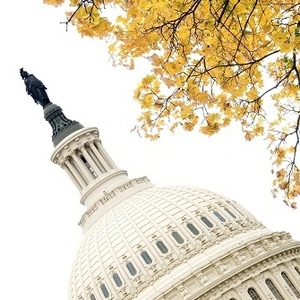Biodiesel leaders press Congress on reformed tax credit

November 17, 2015
BY The National Biodiesel Board
Nearly 100 biodiesel leaders from across the country will press lawmakers on Capitol Hill Nov. 17 to reinstate the biodiesel tax incentive as a domestic production credit in line with a proposal passed unanimously by the Senate Finance Committee in July.
The $1-per-gallon incentive expired on Dec. 31, 2014, marking the fourth time in six years Congress has allowed it to lapse. The continued uncertainty surrounding the incentive has severely stymied investment and growth in the industry.
Advertisement
Advertisement
“Members of Congress should understand that in the business world, this kind of unpredictability makes planning for growth nearly impossible,” said Harry Simpson, CEO of Crimson Renewable Energy, a Denver-based company that operates one of the largest biodiesel refineries on the West Coast, in Bakersfield, California. “People wonder why the economy isn’t doing better, why more companies aren’t hiring, and it’s this kind of inaction in Washington that is holding companies back. We are urging responsible lawmakers to step up and pass a producer’s tax credit as quickly as possible so we can get the biodiesel industry back on track. It is a critical issue for our company.”
This year, the industry is backing a key reform passed by the Senate Finance Committee in S. 1946 that would convert the incentive from a blender’s credit to a producer’s credit focused on domestic production. Under the existing blender’s structure, biodiesel that is produced overseas and blended in the U.S. is increasingly taking advantage of the incentive, undermining U.S. production and directing U.S. tax benefits to foreign producers. By narrowing the eligibility for the credit to domestic producers, the reform would save about $90 million, according to the Joint Committee on Taxation.
“This is a common-sense reform that will appropriately focus the incentive on stimulating U.S. production and jobs while streamlining IRS administration of the credit,” said Anne Steckel, the National Biodiesel Board’s vice president of federal affairs. “It makes a good policy better.”
Advertisement
Advertisement
“The biodiesel tax incentive has broad bipartisan support because it works to create jobs and economic activity, and it furthers our energy policy goals to diversify the fuel markets and reduce emissions,” Steckel added. “It is irresponsible that Congress has allowed this incentive to remain lapsed all year when we know the impact it has, particularly when billions of dollars of incentives for fossil fuels industries are written permanently into the tax code. We should have clear, forward-looking tax policy, not this unpredictable, on-again, off-again system where Congress waits until the 11th hour every year to get anything done. ”
Made from an increasingly diverse mix of resources such as recycled cooking oil, soybean oil and animal fats, biodiesel is a renewable, clean-burning diesel replacement used in existing diesel engines. It is the first and only commercial-scale fuel produced across the U.S. to meet the EPA’s definition as an advanced biofuel—meaning the EPA has determined that it reduces greenhouse gas emissions by more than 50 percent when compared with petroleum diesel.
Biodiesel has displaced about 1.8 billion gallons of petroleum diesel in the U.S. in each of the past two years—and more than 8 billion gallons over the past decade. It is produced in nearly every state in the country and is supporting more than 62,000 jobs. NBB is the industry’s U.S. trade association.
Related Stories
The U.S EPA on July 17 released data showing more than 1.9 billion RINs were generated under the RFS during June, down 11% when compared to the same month of last year. Total RIN generation for the first half of 2025 reached 11.17 billion.
The U.S. EPA on July 17 published updated small refinery exemption (SRE) data, reporting that six new SRE petitions have been filed under the RFS during the past month. A total of 195 SRE petitions are now pending.
The USDA has announced it will delay opening the first quarterly grant application window for FY 2026 REAP funding. The agency cited both an application backlog and the need to disincentivize solar projects as reasons for the delay.
CoBank’s latest quarterly research report, released July 10, highlights current uncertainty around the implementation of three biofuel policies, RFS RVOs, small refinery exemptions (SREs) and the 45Z clean fuels production tax credit.
The U.S. EPA on July 8 hosted virtual public hearing to gather input on the agency’s recently released proposed rule to set 2026 and 2027 RFS RVOs. Members of the biofuel industry were among those to offer testimony during the event.
Upcoming Events










